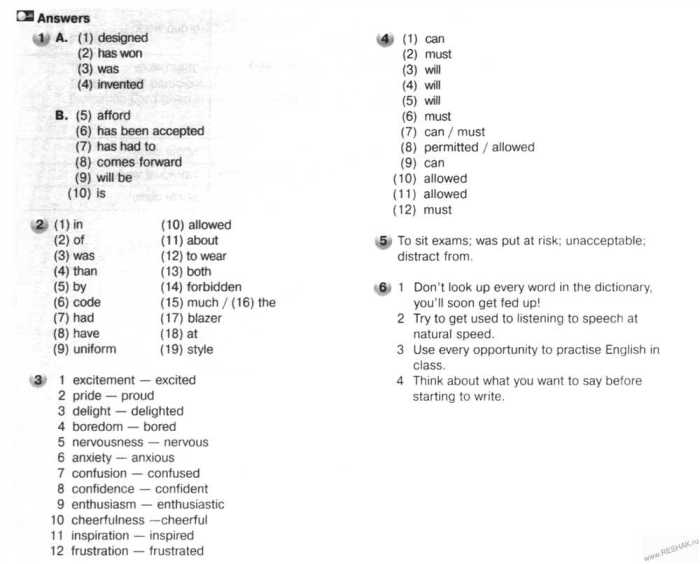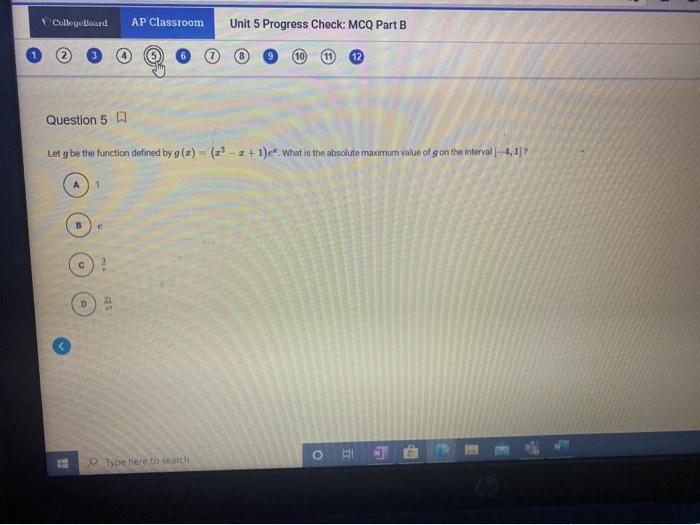Unit 7 APUSH Progress Check MCQs: A Comprehensive Guide to Success
Delving into the intricacies of Unit 7 APUSH, this guide provides an in-depth analysis of the key concepts, themes, and multiple-choice questions (MCQs) that form the cornerstone of progress checks. By exploring the historical context and significance of this unit, students gain a profound understanding of the era’s defining events and their impact on the United States.
Historical Context and Significance of Unit 7 APUSH

Unit 7 of APUSH, titled “The Jacksonian Era and Westward Expansion,” encompasses a pivotal period in American history marked by profound political, social, and territorial transformations. This era witnessed the rise of mass democracy, the expansion of the nation’s borders, and the intensification of sectional tensions that would ultimately culminate in the Civil War.
Expansion of the American Nation
During the Jacksonian Era, the United States underwent a period of rapid territorial expansion, driven by a combination of factors including the Louisiana Purchase, the acquisition of Florida, and the westward migration of American settlers. This expansion had a profound impact on the nation, shaping its political, economic, and social landscape.
- Acquisition of New Territories:The acquisition of vast new territories, such as the Louisiana Territory and Florida, significantly increased the size and scope of the United States. This expansion opened up new lands for settlement, trade, and economic development.
- Westward Migration:The Jacksonian Era witnessed a surge in westward migration, as thousands of Americans sought new opportunities and land in the western territories. This migration had a profound impact on the development of the American West, shaping its demographics, economy, and culture.
- Manifest Destiny:The belief in Manifest Destiny, the idea that the United States was destined to expand westward across the continent, played a significant role in driving territorial expansion during this period. This belief fueled the westward movement and shaped American attitudes towards the Native American population.
Political and Social Changes
The Jacksonian Era also brought about significant political and social changes. The rise of mass democracy, the emergence of new political parties, and the expansion of suffrage had a profound impact on the American political system.
- Mass Democracy:The Jacksonian Era witnessed the rise of mass democracy, as more and more Americans gained the right to vote and participate in the political process. This shift in political power had a significant impact on American politics, leading to the emergence of new political parties and a more responsive government.
- New Political Parties:The Jacksonian Era saw the emergence of new political parties, including the Democratic Party and the Whig Party. These parties represented different political ideologies and constituencies, shaping the American political landscape for decades to come.
- Expansion of Suffrage:The Jacksonian Era witnessed the expansion of suffrage, as more and more states extended the right to vote to white male citizens. This expansion of political participation had a significant impact on the American political system, making it more representative of the American people.
Sectional Tensions
The Jacksonian Era also witnessed the intensification of sectional tensions between the North and the South. These tensions were rooted in economic, social, and political differences, and would ultimately lead to the outbreak of the Civil War.
- Economic Differences:The North and the South had distinct economic systems. The North was primarily industrial, while the South was largely agricultural. These economic differences led to differing views on issues such as tariffs and slavery.
- Social Differences:The North and the South also had distinct social systems. The North was more urbanized and had a more diverse population, while the South was more rural and had a large population of enslaved African Americans. These social differences contributed to cultural and ideological clashes between the two regions.
- Political Differences:The North and the South also had different political priorities. The North was more supportive of a strong national government and federal programs, while the South was more supportive of states’ rights and limited government intervention.
Key Concepts and Themes in Unit 7 APUSH

Unit 7 of APUSH explores a pivotal era in American history, spanning from the outbreak of the American Revolution to the ratification of the Constitution. This period witnessed profound transformations in political, social, and economic spheres, shaping the foundations of the United States as we know it today.
Key concepts and themes that permeate Unit 7 include:
Revolutionary Ideology
The American Revolution was fueled by a powerful ideology that emphasized natural rights, limited government, and popular sovereignty. This ideology, rooted in Enlightenment principles, inspired colonists to challenge British authority and establish a new nation based on democratic ideals.
Political Revolution
The American Revolution brought about a fundamental shift in the political landscape. The Declaration of Independence proclaimed the colonies’ independence from Great Britain, and the Articles of Confederation established a loose confederation of states. However, the Articles proved inadequate to address the challenges facing the new nation, leading to the development of a more robust federal system under the Constitution.
Social Revolution
The American Revolution also had profound social implications. The war disrupted traditional social hierarchies, creating opportunities for social mobility and the expansion of rights for certain groups, such as white women and free African Americans.
Economic Revolution
The American Revolution had a significant impact on the economy. The war disrupted trade with Great Britain and led to the development of new industries and economic networks within the United States. The Constitution established a national economic system that promoted interstate commerce and economic growth.
Constitutional Convention, Unit 7 apush progress check mcq
The Constitutional Convention, held in Philadelphia in 1787, was a pivotal event in the development of the United States. Delegates from the states debated and crafted a new constitution that established a strong federal government with a system of checks and balances to prevent tyranny.
Ratification of the Constitution
The ratification of the Constitution in 1788 marked the culmination of the American Revolution and the establishment of the United States as a new nation. The Constitution has served as the supreme law of the land ever since, shaping the course of American history and defining the fundamental principles of the United States.
Multiple Choice Questions (MCQs) Analysis

Multiple choice questions (MCQs) are a common feature of Unit 7 APUSH progress checks. These questions assess students’ knowledge of the historical content covered in the unit, as well as their ability to analyze and interpret historical evidence.There are several different types of MCQs that students may encounter on Unit 7 APUSH progress checks.
These include:
- Factual recall questionsask students to identify specific facts or events from the historical content.
- Analysis questionsrequire students to analyze historical evidence and draw conclusions about the past.
- Interpretation questionsask students to interpret the meaning of historical events or documents.
- Synthesis questionsrequire students to combine information from multiple sources to form a new understanding of the past.
To effectively answer MCQs on Unit 7 APUSH progress checks, students should:
- Read the question carefully and identify the type of question being asked.
- Review the historical content covered in the unit to identify the relevant information.
- Analyze the evidence provided in the question and draw conclusions based on the evidence.
- Choose the answer that best matches the question and is supported by the evidence.
Students should also be aware of common pitfalls when answering MCQs. These include:
- Making assumptionsabout the historical content that are not supported by the evidence.
- Relying on outside knowledgethat is not covered in the unit.
- Choosing an answerthat is based on personal opinion rather than historical evidence.
By understanding the different types of MCQs and avoiding common pitfalls, students can effectively answer these questions and demonstrate their knowledge of Unit 7 APUSH content.
Sample MCQs and Explanations

In this section, we will provide sample MCQs from Unit 7 APUSH progress checks along with detailed explanations for each answer choice. These explanations will highlight the reasoning behind the correct answer and help you understand the key concepts and themes covered in this unit.
MCQ Table
| MCQ | Answer | Explanation |
|---|---|---|
| Which of the following was a major factor in the outbreak of the American Revolution? | British economic policies | The British government imposed a series of economic policies on the American colonies that restricted their trade and led to widespread resentment. |
| Who was the primary author of the Declaration of Independence? | Thomas Jefferson | Thomas Jefferson was a prominent Virginian planter and politician who played a leading role in drafting the Declaration of Independence. |
| Which battle marked a turning point in the American Revolution? | Battle of Saratoga | The Battle of Saratoga was a decisive American victory that convinced France to enter the war on the side of the Americans. |
| What was the main purpose of the Articles of Confederation? | To establish a loose alliance of states | The Articles of Confederation were a weak form of government that created a loose alliance of states with limited central authority. |
| Which of the following was a key provision of the Constitution? | Separation of powers | The Constitution established a system of separation of powers, dividing the government into three branches: executive, legislative, and judicial. |
Tips for Success on Unit 7 APUSH Progress Checks: Unit 7 Apush Progress Check Mcq

Effective preparation is crucial for success in Unit 7 APUSH Progress Checks. Here are some strategies to help you master the content and manage stress during these assessments:
Effective Study Techniques
- Review Course Materials Regularly:Revisit your notes, textbooks, and online resources consistently to reinforce your understanding.
- Practice Active Recall:Test yourself on the material without looking at your notes. This forces your brain to retrieve information and improves retention.
- Use Spaced Repetition:Review material at increasing intervals (e.g., 10 minutes, 1 hour, 1 day) to strengthen your memory.
- Engage in Group Study:Collaborate with classmates to discuss concepts, quiz each other, and clarify misunderstandings.
- Utilize Visual Aids:Create mind maps, timelines, or diagrams to visualize and organize information.
Q&A
What is the purpose of Unit 7 APUSH Progress Check MCQs?
Unit 7 APUSH Progress Check MCQs are designed to evaluate students’ understanding of the historical events, concepts, and themes covered in Unit 7 of APUSH.
What types of MCQs are commonly found in Unit 7 APUSH Progress Checks?
Unit 7 APUSH Progress Checks typically include a variety of MCQ types, such as single-answer, multiple-answer, and source-based questions.
What strategies can I use to effectively answer Unit 7 APUSH Progress Check MCQs?
Effective strategies for answering Unit 7 APUSH Progress Check MCQs include careful reading, identifying key terms, eliminating incorrect answer choices, and using process of elimination.
